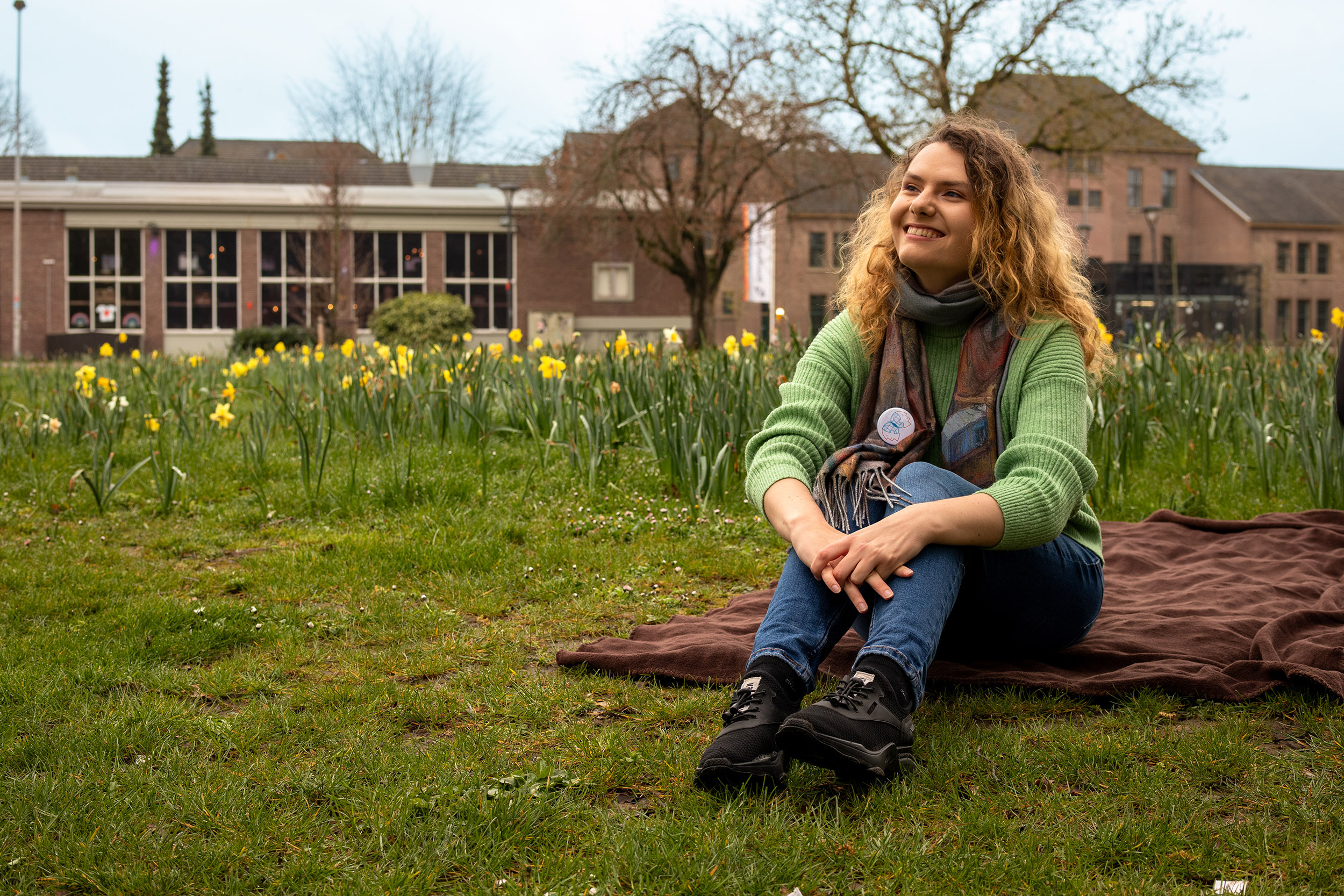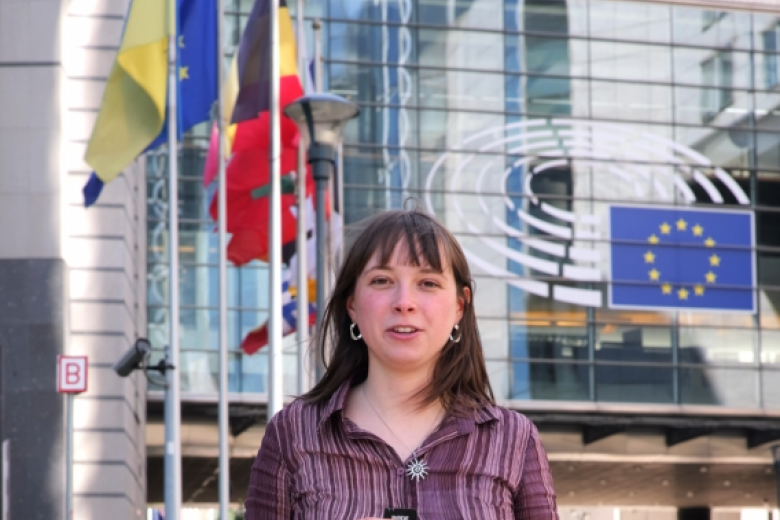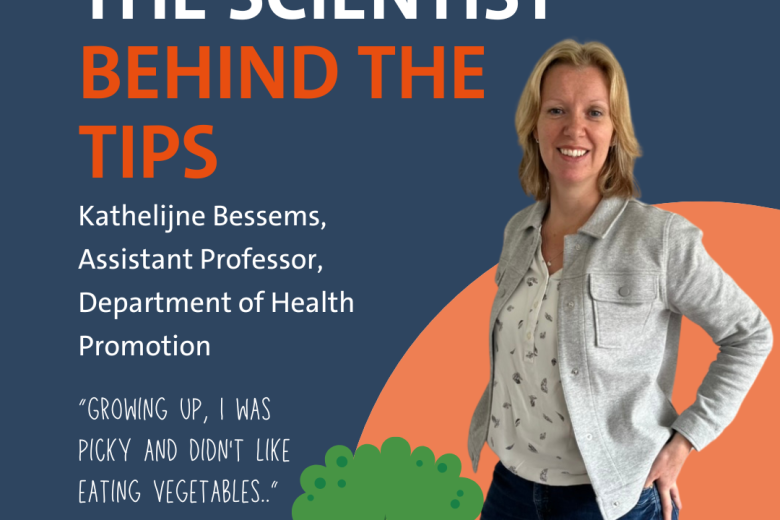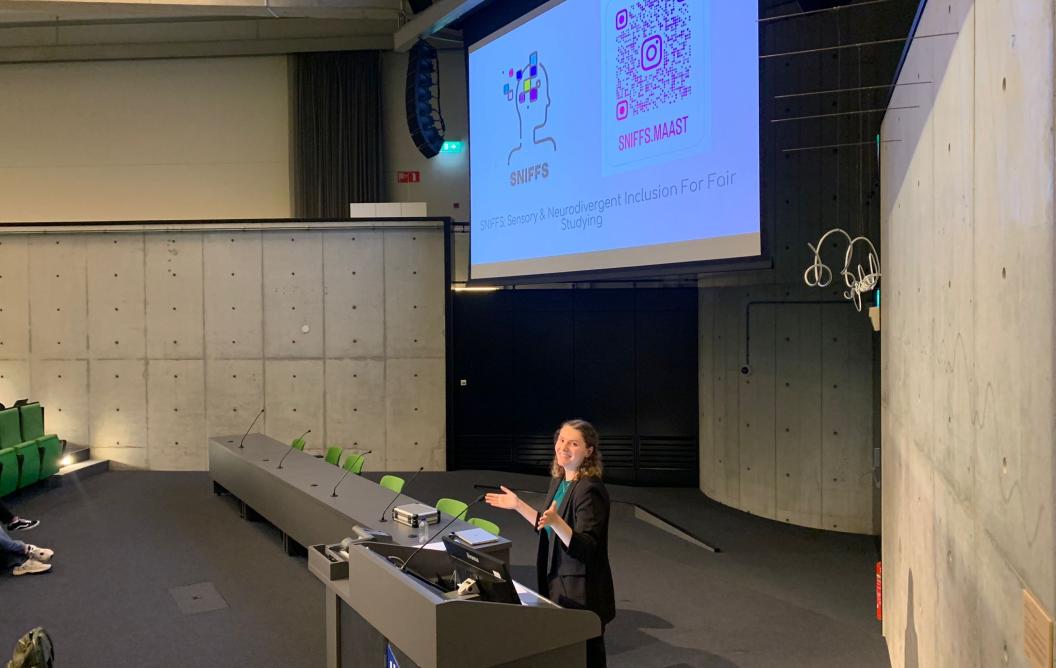Volunteering: thrive by helping others thrive
3rd year European Law School student Natalia Podstawka is one of several UM students to have received a Global Citizenship certificate for her volunteering work. These Civic Engagement Activities foster a sense of community and meaning and offer opportunities for personal growth.
Already during her time in high school in Warsaw, Natalia Podstawka volunteered. “There was a national competition for students to think up and realise a project that would be beneficial for their community.” Together with some friends, she co-organised a series of workshops using improvisation and other techniques to help fellow high school students with public-speaking skills and stress management. “I got a sense that I did something meaningful that actually helps people.”

Community
While altruism and the desire to make a difference are her main motivators, Natalia also points to the secondary advantages of volunteering. “You really get a sense of belonging, of being part of a community, if you work on something you care about together.” Naturally, she continued looking for volunteering opportunities upon arriving in Maastricht.
In her first year, Natalia worked for the student organisation ‘UM Community’, which is now embedded in de Wellbeing Movement. “We wanted to create a community where students could be there for each other; a safe space to help students integrate in Maastricht. We organised events like movie nights or art evenings – anything you can lose yourself in and connect with others.” She also went on to participate in UM’s peer support initiative.
“You really get a sense of belonging, of being part of a community, if you work on something you care about together.”
Personal growth
“It’s also about working on yourself. I don’t know if I would have grown so much as a person if I hadn’t had all of the challenges that came with my volunteer work. It forces you to get out of your comfort zone.” Besides networking, project management and prioritising, Natalia also had to rapidly develop her communication skills. “And all of that in English and with people from different cultural backgrounds.”
Taking on and mastering all of the related challenges builds confidence. “I regularly had to approach people to strike up collaborations… or once I’ve been asked, at very short notice, to give an impromptu speech promoting a project.” The more Natalia got involved, the more opportunities came her way. “As you work with more different people, you get a better idea of all the things that are going on around you.”
Purpose
Together with some friends, she created SNIFFS (Sensory and Neurodivergent Inclusion for Fair Studying), a project dedicated to supporting neurodivergent UM students – that is, for example, students with ADHD or autism. “Among other things, we organised an event including a lecture by a UM professor about how memory works and workshops about neurodiversity and how students can study more effectively. Small things can make a big difference, like changing to the dyslexic font or having texts converted to audio.”
SNIFFS is also working with SSC to make all the information and tools for neurodivergent students – from studying to career development – more easily findable on UM’s Personal and Professional Development Portal (in addition to UM’s studying with disability support page). More recently, Natalia joined an educational programme committee to inspire more conversation around neurodivergence and community building in Maastricht.
The idea for SNIFFS came about when Natalia became aware of the unmet needs of neurodivergent students. That in general is also her advice for first year students seeking opportunities to volunteer. “Just take some time to observe the community and find an issue you really care about. Either you can join an organisation dedicated to addressing that issue, or you can start your own project. In any case, many new possibilities and ways forward will emerge.”
“Just take some time to observe the community and find an issue you really care about.”
Citizen badge
While CV-building is not much of a concern for Natalia in this context, she still appreciates the Global Citizenship badge she has received for her volunteer work. “You can approach the CEA office if you think you meet the criteria specified on their website. If you take volunteering seriously you will almost certainly meet them and you will receive a badge on the edubadge platform, which you can share on your LinkedIn and CV.” While this will clearly not make or break her career, Natalia is still happy that non-academic performance, which aligns with the values and mission of UM, is also recognised and rewarded.
The global bit in Global Citizenship as a concept, to Natalia, should be interpreted very locally: “I think it’s about making a difference and helping out wherever you are – even if you’re just helping one person.”
UM’s Personal & Professional Development Portal offers, among many other things, a list of Civic Engagement Activities opportunities. They are also the ones to award the digital edubadge Global Citizenship.
Text: Florian Raith
Also read
-
Europe Day
To celebrate Europe Day on 9 May, FASoS student Lisa travelled to Brussels to meet with five of our inspiring alumni who are currently shaping European policy and advocacy. In this video, they share why Europe Day matters, how it’s celebrated in Brussels, and what the idea of Europe means to them.

-
The Green Office Catalyses Circularity Projects’ Autonomy
This semester, the Green Office cultivated the untapped potential of the Community Garden and the Clothing Swap Room. We hope that these Circularity Projects will operate under autonomous, functional organisations by this time next year, with continued support from the Green Office and the SUM2030...
-
Evidence-based health tips for students: the science of eating healthy
In the upcoming months, we’ll share tips on Instagram for our students on how to live a healthier life. Not just a random collection, but tips based on actual research happening at our faculty. The brains behind this idea are Lieve Vonken and Gido Metz, PhD candidates at CAPHRI, the Care and Public...

